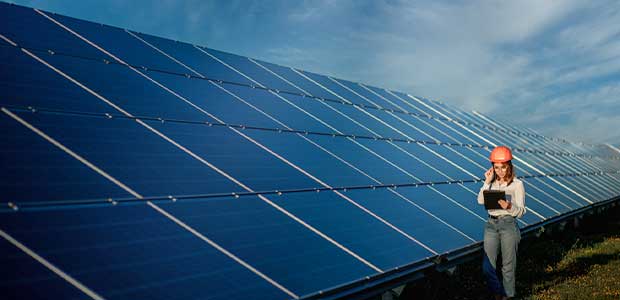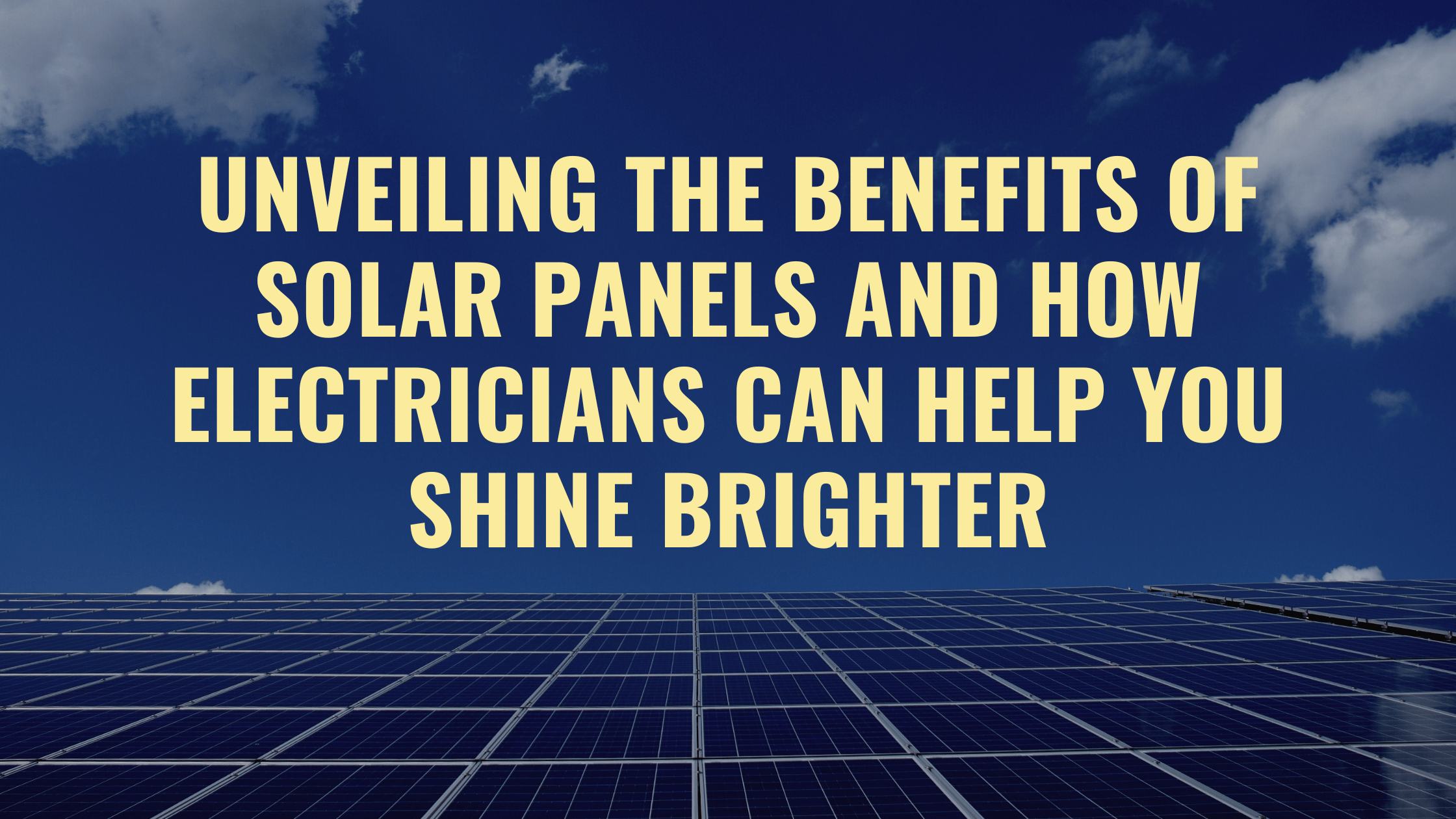Simply Solar Illinois: Solar Panel Experts for High-Quality Energy Solutions
Simply Solar Illinois: Solar Panel Experts for High-Quality Energy Solutions
Blog Article
How Solar Power Can Aid You Save Money and Reduce Your Carbon Footprint
The combination of solar power into your power portfolio presents an engaging possibility for both monetary savings and ecological stewardship. As various government incentives become available, the inquiry develops: exactly how can one successfully navigate the initial financial investments and ongoing advantages of solar technology to take full advantage of both economic and environmental gains?
Recognizing Solar Power Financial Savings
While the shift to solar power commonly includes a preliminary investment, understanding solar energy savings is essential for house owners and services alike. Solar energy systems can substantially lower electricity bills by taking advantage of the sunlight's energy, translating right into substantial lasting economic advantages. By creating their own power, customers lessen dependence on grid power, which undergoes changing rates. These cost savings can collect gradually, often resulting in a quick return on investment.
In addition, solar energy systems may receive various economic rewards, including tax obligation credit scores and discounts, additionally enhancing their cost-effectiveness. The availability of internet metering permits individuals to offer excess energy back to the grid, developing an added profits stream. These variables contribute to the total savings connected with solar power.

In enhancement to guide financial savings, solar energy provides the added advantage of increasing residential or commercial property worth. Homes outfitted with solar panels are usually extra appealing to customers, as they promise lower energy prices - Simply Solar Illinois. Understanding these aspects is crucial for anybody considering solar power, as it highlights not simply the possible economic gains, however likewise the wider environmental and financial benefits of adopting renewable resource services
Initial Costs vs. Long-Term Perks
When examining solar energy, it is essential to weigh the first costs versus the long-term benefits. The in advance investment for photovoltaic panels, setup, and relevant equipment can be considerable, commonly ranging from $15,000 to $30,000, depending on the system dimension and home power needs. This first expenditure might hinder some home owners; nevertheless, it is vital to consider the prospective financial savings with time.
Once set up, solar energy systems can considerably minimize or perhaps get rid of month-to-month power expenses, bring about considerable long-lasting economic advantages. Research studies indicate that homeowners can save anywhere from $10,000 to $30,000 over the life expectancy of their planetary system, normally 25 years. Additionally, many states offer incentives, tax obligation credits, and rebates that can counter preliminary costs, making solar extra obtainable.

Lowering Your Carbon Footprint
Minimizing your carbon impact is an important factor to consider in today's eco aware culture, and adopting their explanation solar power is just one of one of the most reliable techniques to achieve this goal. Solar power is a clean, sustainable resource that significantly diminishes dependence on nonrenewable fuel sources, which are major contributors to greenhouse gas exhausts.

Moreover, the widespread fostering of solar innovation motivates the growth of green work and supports developments in energy storage space and effectiveness. The even more individuals and organizations spend in solar power, the greater the collective reduction in carbon discharges, cultivating a cleaner environment for future generations.
Government Motivations and Rebates
Adopting solar energy not just benefits the atmosphere yet can likewise cause significant monetary savings, especially with the accessibility of federal government motivations and rebates. Various federal, state, and local programs are developed to encourage house owners and companies to invest in solar power systems, making the change a lot more budget-friendly.
Among the most popular incentives is the Federal Investment Tax Obligation Debt (ITC), which permits solar system owners to deduct a substantial percent of the installment costs from their federal tax obligations. This incentive has actually been pivotal in decreasing the in advance expenditures related to solar power systems. In addition, lots of states use their own tax credit reports, grants, and rebates that can better improve cost savings.
Furthermore, some city governments provide real estate tax exceptions for solar installments, making certain that house owners do not encounter increased home taxes as an outcome of useful content their eco-friendly power investments. Utility companies might also supply motivations, consisting of internet metering and feed-in tolls, which enable solar energy customers to sell excess power back to the grid.
Picking the Right Planetary System
Selecting the proper planetary system is important for taking full advantage of energy performance and financial advantages. The choice depends upon several factors, including energy requirements, budget, and offered room. Homeowners must start by assessing their electricity consumption to determine the system dimension needed for ideal efficiency.
Next, take into consideration the various kinds of solar technologies available. Simply Solar Illinois. Solar (PV) panels are one of the most typical, transforming sunlight straight into electricity, while solar thermal systems concentrate on heating water. Each kind has unique advantages depending upon specific requirements
Budget plan considerations are additionally paramount. Initial installation prices can differ dramatically, so it is necessary to contrast quotes from several providers and explore funding alternatives. Government rewards and discounts can even more decrease the financial burden, making planetary systems more obtainable.
Conclusion
The ecological benefits of solar energy add to lasting techniques vital for combating climate modification. Federal government incentives boost the expediency of solar technology adoption, encouraging a shift in the direction of a cleaner, extra economically efficient power source.
Report this page